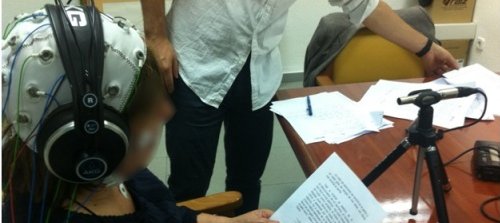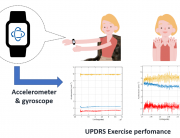The influence of sound in the human being is an area of growing interest. Although since ancient sound (mainly music) is used for therapeutic purposes, it is in the last decades when it has begun to scientifically discover their varied ability to influence humans. Studies suggest that the use of sound can produce improvements in diseases like Alzheimer’s and Parkinson or developmental disorders such as autism spectrum disorder.
The Research Group on Instrumentation and Applied Acoustics (I2A2) of the Polytechnic University of Madrid (UPM) started working in this line 12 years ago the, focusing on analyzing the possibilities that certain acoustic stimulations can offer in improving symptoms in different neurological pathologies. The work has been developed in collaboration with various associations such as the Association Parkinson Madrid, and with the participation of various experts such as neurologists from the Ramon y Cajal Hospital in Madrid. Noteworthy is the collaboration with the Center for Biomedical Technology (CTB), which brings together researchers from the UPM, mainly engineers, and the Complutense University of Madrid (UCM), mainly doctors and psychologists. So far, three doctoral theses have been developed and published several scientific articles demonstrating the enormous potential offered by this field.
The promising results achieved, as well as new lines of research that have emerged, motivated both institutions to create a specific research laboratory, the Neuroacoustics Laboratory, which has based at the UPM. The laboratory, which has launched ten researchers from both institutions, is to integrate the potential of both organizations to advance not only in the original line of acoustic therapy, but also in the development of methods for diagnosis through processing acoustic signals or study group under sound motor activity. Such approaches are possible mainly thanks to the development of techniques capable of recording the physiological activity, such as electroencephalography / MEG or fMRI, which have opened the door to detailed knowledge of how sound can the change our mood, cognitive performance or brain activity, among others. However, these studies generally showed a significant lack, which is the control of acoustic stimulation.















